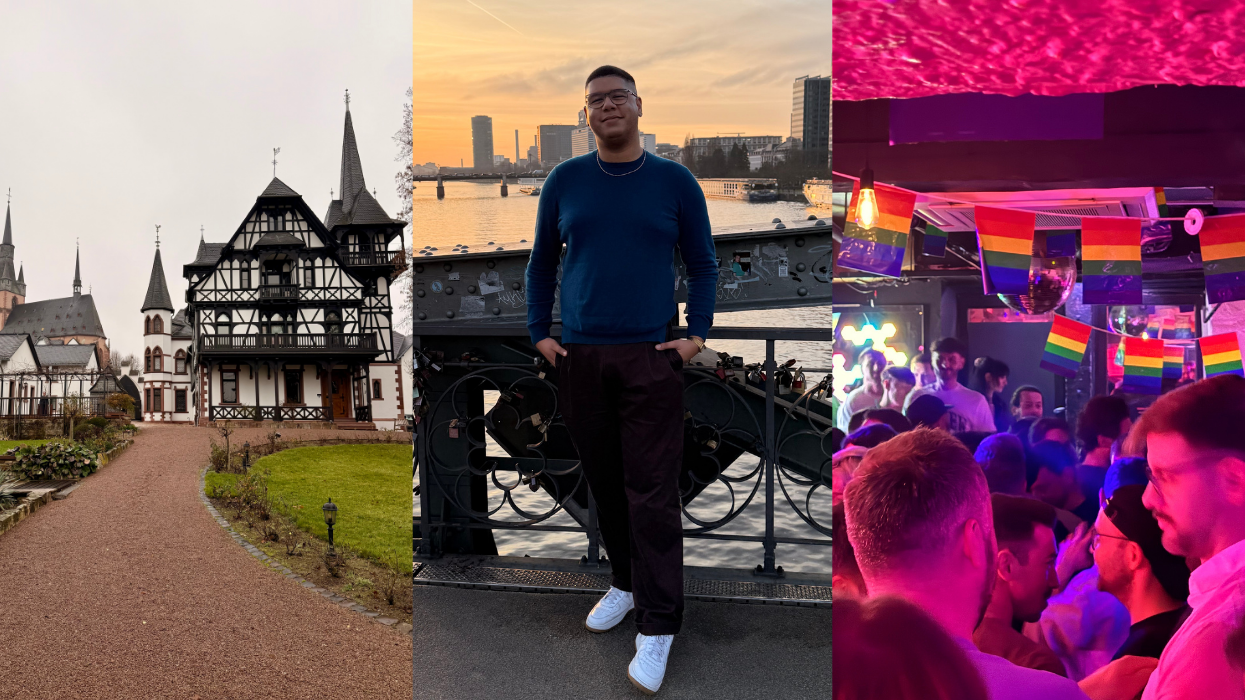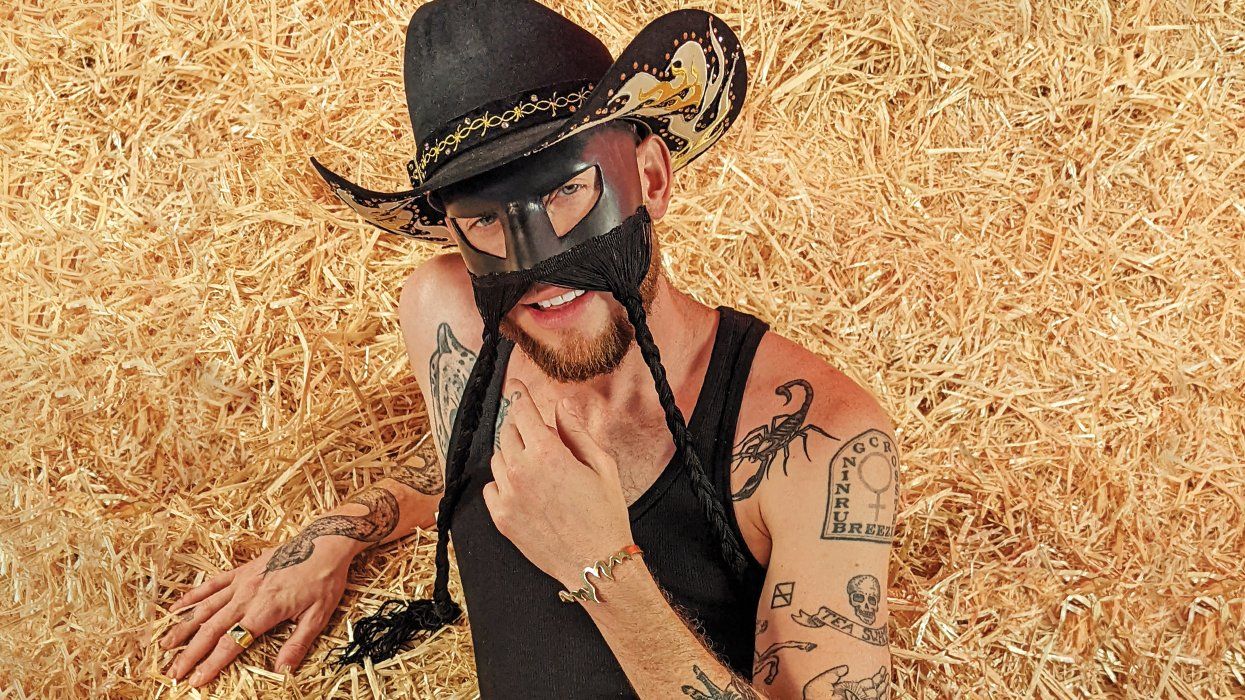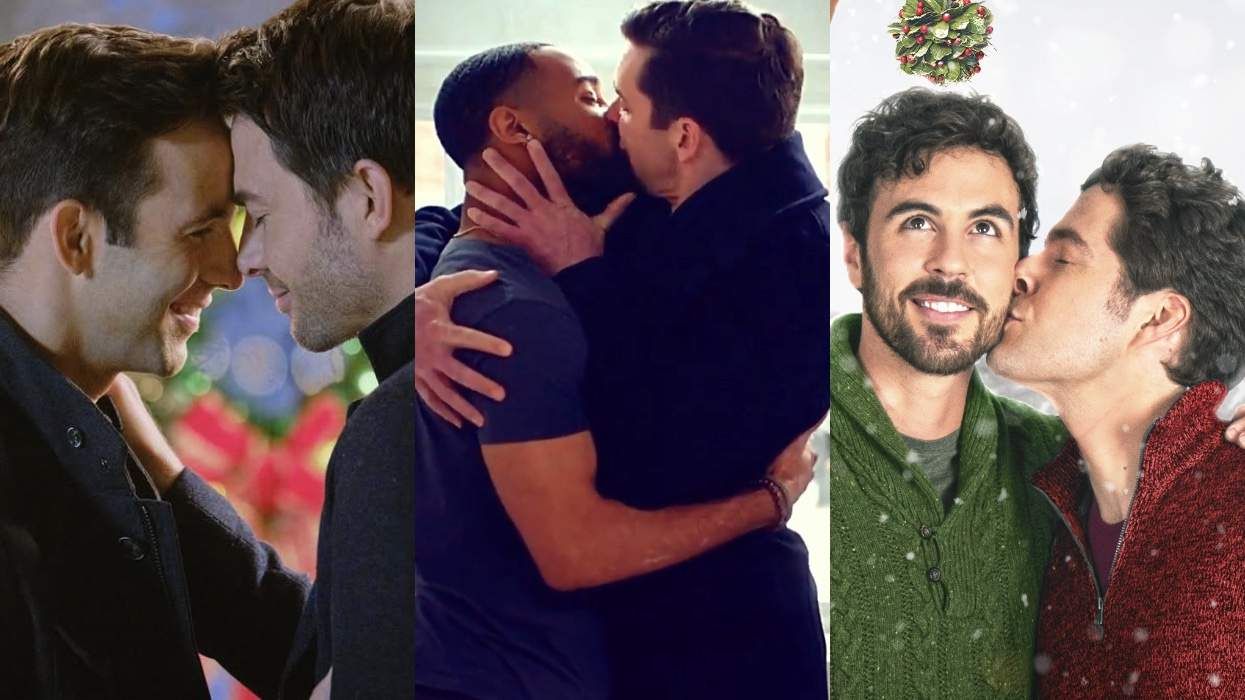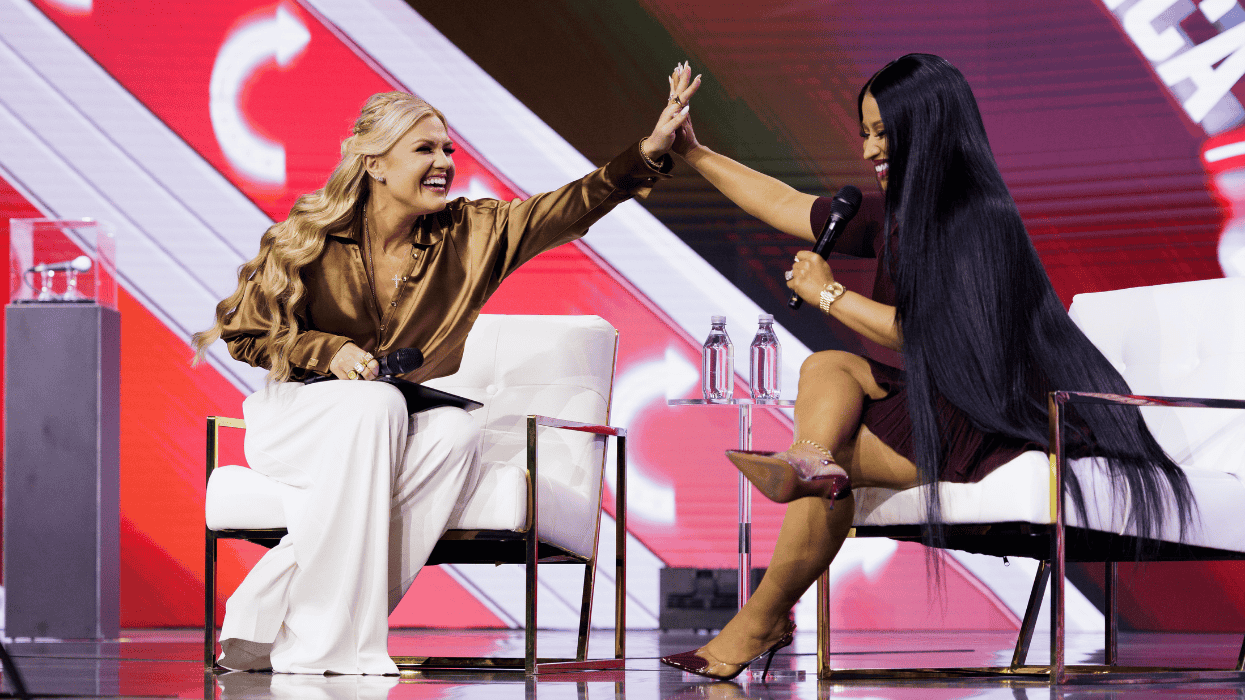Fear filled me as I walked towards Saudi immigration. Was I Muslim enough to be allowed in?
I was a marked man--publicly labeled an infidel for my blasphemous argument that Islam and my homosexuality could co-exist. Following the release of my 2008 film, A Jihad for Love, a fatwa (religious opinion) condemned me. The fatwa provided extensive, supposedly Quranic evidence, quoting from the "Judgment on Apostates" section of the curriculum used in Saudi schools:
An apostate will be suppressed three days in prison in order that he may repent. Otherwise, he should be killed, because he has changed his true religion, therefore, there is no use from his living.
But there I was, at the border of the nation I most feared: Wahabi-land. Wahabism is the cruel and puritanical form of 18th century Islam the Saudi's practice. They reserve the death penalty for people like me, with beheading often being the punishment of choice.
Immense faith had brought me here. I was obeying my highest calling as a Muslim to embark on the Hajj pilgrimage. This was my journey of the spirit. I prayed I would be allowed to finish it.
"Muslim?" said the balding border guard scrutinizing my Indian passport.
"Yes" I answered with a confidence I did not feel.
He typed into a tired looking PC. Had he googled me and already known who I was?
Stamping my passport with his grubby fingers he said, "Ahlan al Hag", (Welcome Hajji). Premature, I thought. The greeting was reserved for those who had already fulfilled Islam's highest calling. "Insha'Allah" (If God wills), I replied. He smiled. It was as if he had stamped the word "Muslim" on my forehead.
Our Shia-filled bus sped towards Mecca. Well-marked signs on the road to Mecca read "Muslims Only." The Saudis provide timely highway exits marked "Non Muslims" for the disbelievers. As far as the Wahabis were concerned, both the Shia and I would usually fall into the disbeliever category. At the time I thought I was the only Sunni in my Hajj group. I shared this secret with our group leader, Shafiq. My bigger secret, I dared not share. That stayed in my Hajj closet.
"We Shia welcome you brother Parvez. But if it were the other way around, it would never happen. A Shia pilgrim in a Sunni group? Never!"
I felt a surprising affinity with them. Islam's outliers shared a Hajj of defiance with me. For them this desert was a landscape of destruction. The Saudi's had obliterated the graves of Islam's ancestors - graves to which they prayed. Islam's most bitter divide is about lineage. Who inherits the Prophet Muhammad's wisdom?
At Jannatul Mu'alla, the historic cemetery in Mecca, disobeying Wahabi doctrine, we prayed as intransigents to graves that included the Prophet's wife and grandfather. A white SUV pulled up and out stepped a Mutawwa, a foot soldier of the feared Saudi Commission for the Promotion of Virtue and the Prevention of Vice. "Shirk," (idol worship) he yelled through a bullhorn. He exhorted us to not turn our backs to the Kaaba, the black cube shaped structure that is the beating heart of Islam.
Hours later, I walked towards the Masjid al Haram (The Sacred Mosque) that houses the Kaaba. I was walking in an unnervingly capitalist landscape. Skyscrapers and cranes leapt into the heavens. I wondered if the crowds of pilgrims, transformed now into eager shoppers, recognized the destruction. The Saudi-funded obliteration of Islamic history was at peak success. They had even built a row of toilets over the home the Prophet shared with his first wife, Khadija. This was Mecca Vegas. The Prophet Muhammad would recognize nothing in this town but the ancient Kaaba, where I was headed.
The Hajj is a harsh pilgrimage that is fundamentally about faith and surrender. It was only moments spent praying to and contemplating the Kaaba that offered succor to the faithful. The hungry hands of sinners, over centuries, made its grainy, granite surface a vessel of forgiveness. It radiated a strength that filled me. Drawn to it like a magnet, I would return night, after sleepless night. If Islam offered redemption to its sinner-pilgrims, it was to be found right here, at the Kaaba.
"Parvez?"
It was Younes, the mild mannered doctor from Alabama. We had become Hajj friends and for a moment we marveled at the unlikelihood of finding each other in these immense crowds.
He was a thoughtful man. And I had instinctively liked him.
"I have something to tell you," he said. I listened. He was coming out to me, as a Sunni man.
"But I thought your wife and mother-in-law were Shia, "I said.
"An unlikely marriage, but a very strong one," he said.
He asked me if I knew how to pray like the Shia. I told him, I had spent months learning their customs before I came. When with the Shia group I prayed like they did. When alone I prayed the slightly different Sunni way.
"A good compromise," he said, "it wouldn't be good to be found out as an outsider here."
I already knew that Younes chose his words carefully. I wondered if he knew. We sat in contemplative silence for a while. I had always been taught that where we sat was God's abode. And God didn't like liars, my mother used to say. My burden of deceit suddenly felt very heavy.
"I have something to tell you too, "I whispered.
"I am gay." The three words I have never even dared say to my father.
"I knew," he said. And then there was silence. Eternities passed. Younes gently put his arm around my shoulder.
"Why would you want to be a part of something that wants no part of you?" he asked.
The Kaaba gave me the strength to come out, I wanted to tell him. His kind gesture validated my very being. The sleepless nights spent here had changed me. Here at Islam's ground zero, I believed that I had received acceptance from a higher power than those who patrolled these walls with rifles and batons. Now, my Islam would forever be different. It would no longer be a faith of fear. It was no longer a question of whether Islam would accept me. It was a question of whether I would accept Islam.
And sitting there silent, with the nice Sunni Doctor from Alabama, steps away from Islam's beating heart, I did.
Parvez Sharma is a documentary filmmaker and his second feature film, A Sinner in Mecca, opens Sept. 4 at Cinema Village in New York City.






























